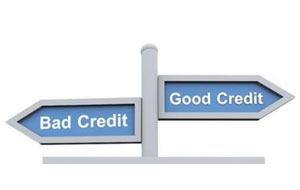ESTABLISH CREDIT
Are you a first-time credit candidate wanting to apply for a loan or a new credit card but don't yet have a credit history? Everyone has to start somewhere, so begin by knowing what lenders are looking for and how you can establish and improve factors that are often taken into consideration.
How To Begin Establishing Credit

A lender will often look at a FICO score when determining the feasibility of extending a loan. You may also hear about TransUnion, Experian and Equifax credit reports (our representatives can explain what they all mean). To start, learn what FICO stands for, why it is important, and how you can improve your score. The higher this three-digit score, the lower the risk to a lender, and therefore the better your chances will be to obtain your desired loan or credit. After all, if you lent money to someone, you'd want to feel comfortable with expecting that they'd pay you back, and pay on time, right?
A FICO score is based upon several weighted factors that include:
- Payment history—35% (on-time payments, late payments, missed payments)
- Total amounts owed—30%
- Length of credit history—15% (pertaining to on-time payments, and the longer the better)
- New credit—10%
- Type of credit in use—10% (usually, long-term accounts such as a home mortgage have a more favorable impact than revolving accounts, or credit cards).
Approximate interpretations of FICO scores:
- 720-850—excellent
- 660-719—good
- 600-659—fair
- 350-599—low/poor (could indicate an inability to properly manage credit, resulting in higher interest rates, lower credit limits, or credit rejection).
You can take action to improve your FICO score by making on-time monthly payments, exceeding the minimum monthly payment (or paying the full amount), and avoiding opening credit accounts unnecessarily..
A credit score is not the only determining factor lenders use. Other ways to improve your credit risk:
- Open a bank account (checking, savings) and maintain a good account history.
- Employment history—your ability to hold down a steady job over periods of time.
- Residence history—whether you rent or own and how often you move (a stable residence is good; owning a home, even jointly, carries some weight).
- Having utilities in your name, and paying them promptly—electric/gas, telephone, cable, water.
A possible option is a department store card is usually unsecured, meaning that it won't be tied to your assets that can be taken if you default on your payments. But you'll need to find out if its use will be reported to credit bureaus; if not, then it won't help your credit. If so, plan on paying the balance in full each month (also, there is a cost to the 10% savings on your purchase when you open the account—very high interest rates).
Less desirable is secured credit (if reported to the credit bureaus), meaning that there is an asset (house, car, a dollar amount) linked to the account as collateral that the lender can take if you fail to make payments. After you maintain that account in good standing for a while, you may be able to obtain a regular credit card or get approved for a loan.
Trinity Credit Services will look at your individual circumstances and make recommendations. Contact Trinity Credit Services today to begin a pathway to your destination.
